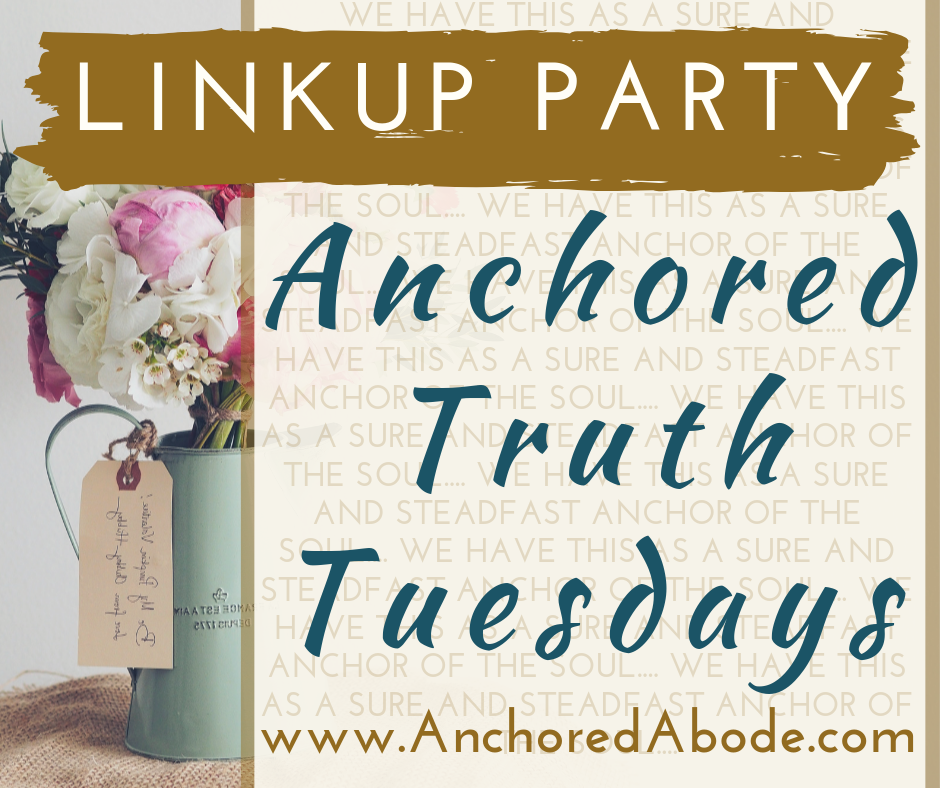Do you Love Mercy? (Jonah 4 – Micah 6)
Have you ever witnessed a relationship redeemed after one party gifts the other a second chance (with appropriate changes of course)? Were you happy for them?
Similarly, when we watch someone offered mercy by God, even if their past is less than honorable, should evoke the same kind of relief on our part.
When it doesn’t, we reveal a heart not fully inclined to God’s desires.

It’s never too late to start!
Download your first two weeks free by signing up below (or buy Book One of the Family Bible Plan)!
[email-download-link namefield=”YES” id=”5″]
Have you ever witnessed a relationship redeemed after one party gifts the other a second chance (with appropriate changes of course)? Were you happy for them?
Similarly, when we watch someone offered mercy by God, even if their past is less than honorable, should evoke the same kind of relief on our part.
When it doesn’t, we reveal a heart not fully inclined to God’s desires.

It’s never too late to start!
Download your first two weeks free by signing up below (or buy Book One of the Family Bible Plan)!
[email-download-link namefield=”YES” id=”5″]
Jonah Gets Angry
When God saw what they did, how they turned from their evil way, God relented of the disaster that He had said He would do to them, and He did not do it.
But it displeased Jonah exceedingly, and he was angry.
Bible Gateway
Jonah 3:10-4:1
Anger was Jonah’s response to God relenting from punishing Israel’s enemies.
In the prior books God walks through impending judgments and disasters that will befall the nation’s opposing Israel. But in Jonah, we see God’s sovereignty in that He chooses a city of peoples and animals to gift mercy to.
While God wanted to show compassion on them, it invoked a reaction from Jonah that we might find ourselves fall prey to.
Reactions…
Now, think back through Psalms and Hosea. David had quite a few Psalms where he prayed for natural consequences to be brought to his enemies, for God to wait no more to punish them, and for cries for help against them.
In Hosea, we even find Hosea asking Gomer’s three children to let her go to face her own consequences so that she would come back to God repentant.
In Jonah though, we find a different main character. One who does not want to go preach to Israel’s enemy to the point he tries to run away from God. When his life is spared in a miraculous way, a repentant and grateful heart lead him to obey, only to follow up with frustration once God shows mercy to his enemies.
Note that there is a difference between those prayers. David was asking God for protection and care, but we also don’t see him gloat when God delivers him. His focus is on gratefulness directed toward God.
Hosea is seeking for a rightful heart from Gomer.
Jonah is mad that God showed compassion and mercy, like a petulant child clearly forgetting the mercy he was just shown for his own disobedience.
Our own hearts…
What Jonah displays is often played out in related ways in our own lives.
See, we can judge others based on what we see without recognizing the heaps of sins we have committed and had forgiven.
Our understanding is limited by what we see, our viewpoints, and the amount of wisdom God grants us. God’s is matchless and unlimited. Do we know better than Him on who should be the recipients of mercy?
What does that say about us?
Judgments…
God showed mercy to a foreign enemy of the Israelites. When we get to the book of Micah, the narrative of mercy leads into detailing how God is continually merciful to His people.
Even though the Israelites were wrought with wickedness, God still showed that mercy would be granted (later).
Just as the Ninevites were judged, so too, the Israelites.
The corresponding reactions were repentance and hard-heartedness. Not exactly the responses we would expect from an enemy, nor one we would expect from God’s own people.

The promise of hope…
The Bible often walks through the seriousness of sin and disobedience with a follow-up of hope.
In Micah, God does the same by promising the Savior and a future for the remnant.
Writhe and groan, O daughter of Zion, like a woman in labor, for now you shall go out from the city and dwell in the open country; you shall go to Babylon.
There you shall be rescued; there the Lord will redeem you from the hand of your enemies.
Now many nations are assembled against you, saying, “Let her be defiled, and let our eyes gaze upon Zion.”
But they do not know the thoughts of the Lord; they do not understand His plan, that He has gathered them as sheaves to the threshing floor.
Bible Gateway
Micah 4:10-12
God’s sovereignty is over all nations, in the consequences and the gifts of mercy.
Among the nations…
We see God treating nations and cities as whole, and that the book of Micah starts showing the individual relationships coming from the nations are shifting into focus as we near the New Testament teachings. Seeing God with power over an entire nation helps to solidify our view of Him as supremely sovereign.
It is then we are able to understand better how our individual lives are under His control. If God is God over the nations, surely He is God over you.
Just as the Israelites were going to be scattered among the nations, we as Christians are scattered among the nations.
Moving forward…
Our life as Christians can easily become like the Israelites: disingenuous, allowance of sin, and striving for power and money.
Until we see what is required of us. But if the New Testament says we are saved by faith alone, then there are no requirements, right?
The covenants God made with His people were like a marriage covenant today, each side pledges to agree to a certain set of standards. In the New Testament, faith is the entering into of the covenant; us living a holy and obedient life are the natural result of a person seeking the Lord in faith.
So what are the requirements? God gives them in Micah to the Israelites and they are confirmed in the New Testament.
And what does the Lord require of you?
To act justly and to love mercy and to walk humbly with your God.
Bible Gateway
Micah 6:8, NIV
Love Mercy…
Loving mercy is having a heart inclined to see everyone as a potential brother-in-Christ. It is to rejoice when one repents, even if they were once your enemy!
Last Week
Amos 7 – Obadiah – Jonah 3
Is a Life of Living Faith Important to You?
Anchored Truth Tuesdays

~It is appreciated but not required that you follow my social media accounts[DISPLAY_ULTIMATE_SOCIAL_ICONS]
~I do ask that you use the Anchored Truth Tuesdays logo image on your site somewhere or on the post itself; if you click on the picture a new window will open with html instructions
~ Family friendly posts only (I reserve the right to delete any that are deemed inappropriate); with a direct link to a specific blog post
~We have a Pinterest group board, ” Anchored Truth Tuesdays, where all who link up are welcome to also upload their content–you’ll just need to like Anchored Abode first, and then request to join
You are invited to the Inlinkz link party!




Justice, mercy, humility — OT and NT overflow with the truth that this is what righteousness looks like.